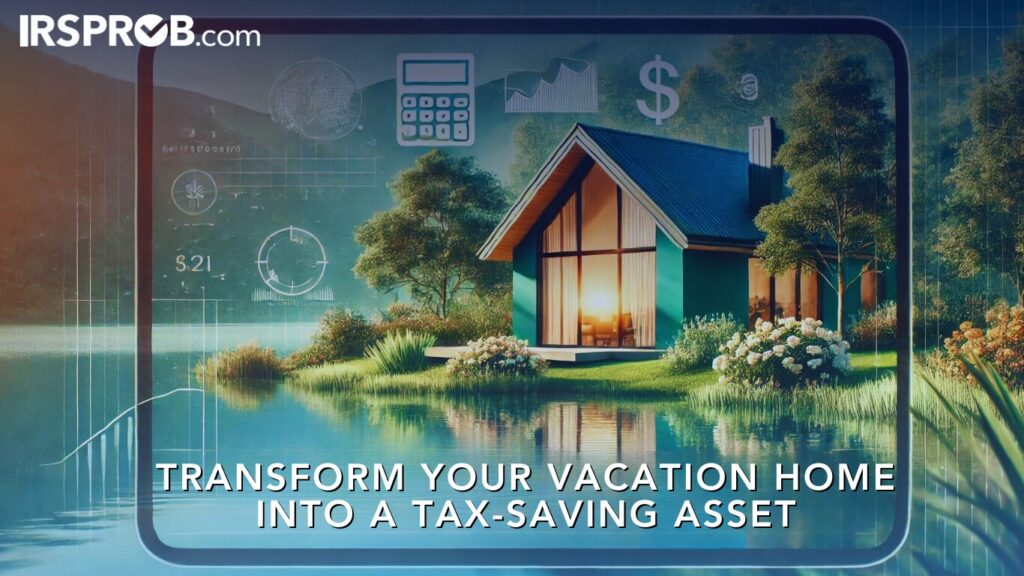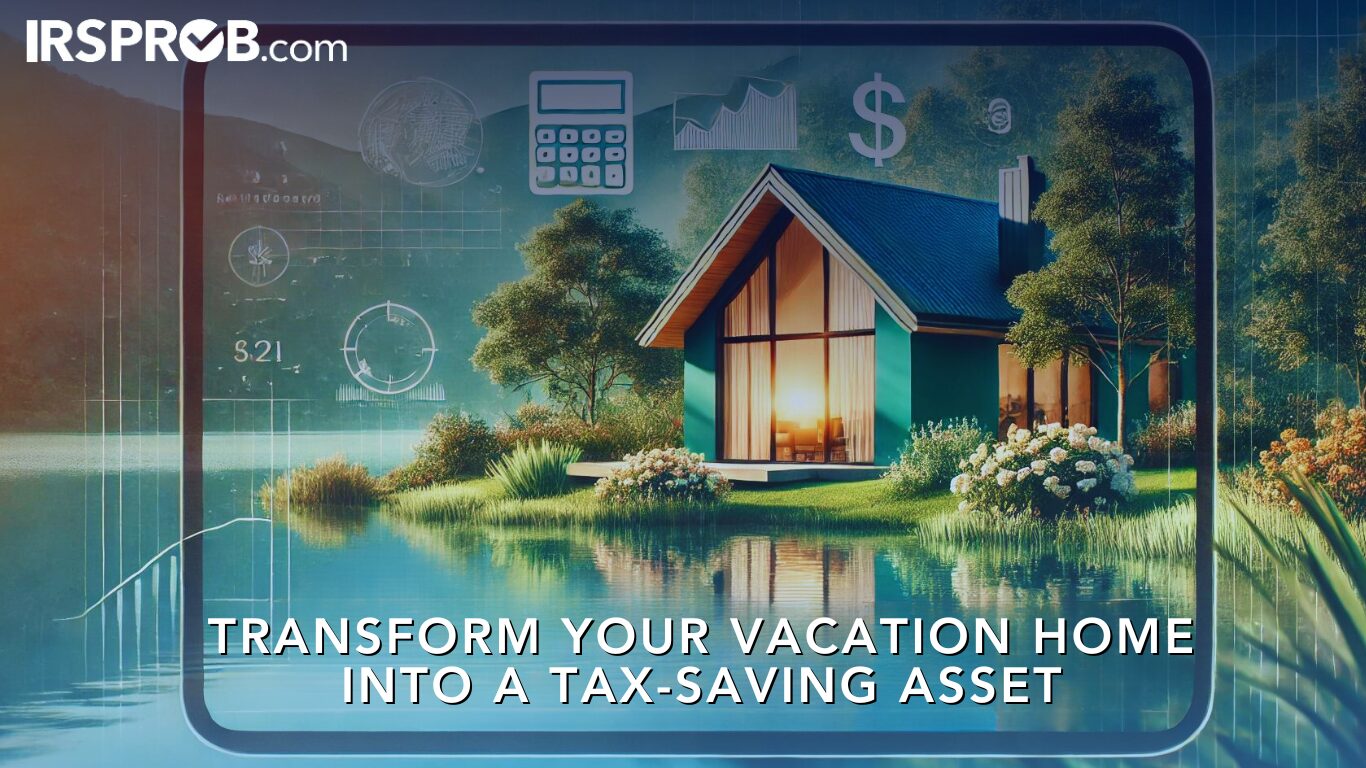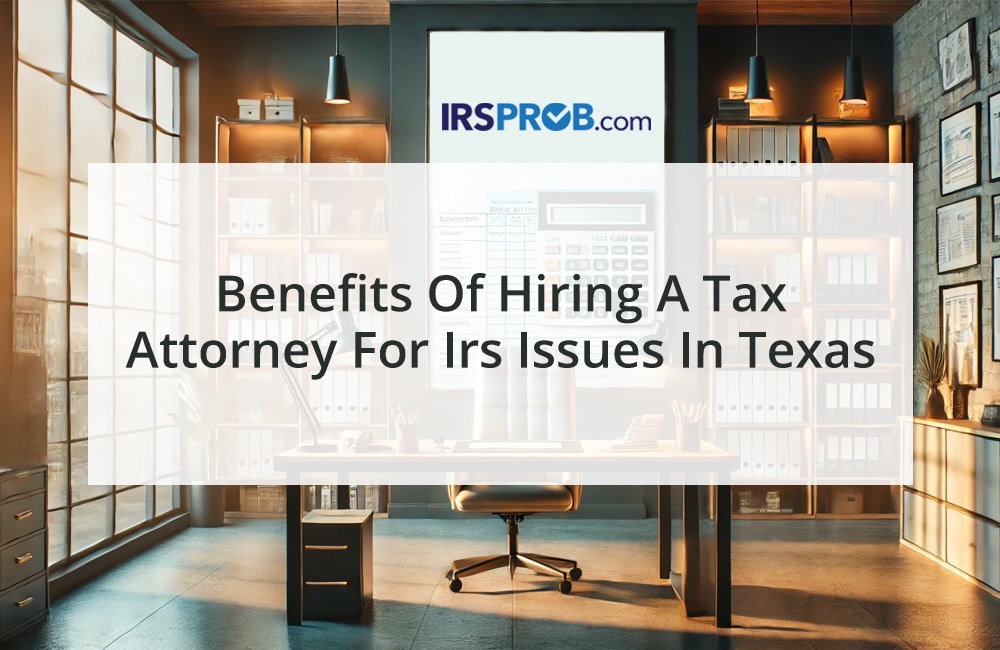
Owning a vacation home or second property can be more than just a personal luxury; it can also be a strategic asset in your tax planning. By understanding how to leverage your vacation home for business purposes, you can unlock significant tax deductions while avoiding common pitfalls. Here’s what business owners need to know to transform their vacation home into a tax-saving asset.
1. Using Your Vacation Home for Business Lodging
If your vacation home or condo is used exclusively for business lodging, it escapes the restrictive vacation-home rules, allowing you to fully deduct your business-lodging costs. This is particularly beneficial for business owners who regularly travel to a different location for work. For example, if you have a beach home you use for overnight business stays and never rent it out or use it for personal purposes, the property is considered a 100% business asset. You can deduct the related expenses without worrying about the vacation-home rules.
2. Rental Use and Its Implications
Once you start renting out your vacation home, even for a few days, the tax implications change. The IRS imposes specific rules depending on how much you use the property for personal, business, and rental purposes. If you rent out the property for more than 14 days a year and your personal use exceeds the greater of 14 days or 10% of the rental days, your home is classified as a personal residence. This classification can limit your ability to deduct rental expenses and may trigger the passive loss rules, which can defer your tax benefits to future years.
However, if you rent your property for less than 15 days a year, you can take advantage of a special tax break. In this scenario, you don’t have to report the rental income, and it remains tax-free. But you also forfeit any deductions related to the rental use, such as advertising and cleaning expenses.
3. Avoiding Entertainment and Charitable Use Pitfalls
Business owners should avoid using their vacation home for entertainment purposes, as the IRS disallows deductions for any business entertainment expenses under the Tax Cuts and Jobs Act (TCJA). Similarly, donating a week at your vacation home to a charity auction, while a generous act, can result in a “no good deed goes unpunished” tax scenario. The IRS counts the donated week as personal use, and you won’t receive a tax deduction for your charitable contribution.
4. Selling Your Vacation Home
If you’re considering selling your vacation home, be aware of the tax consequences. Unlike your principal residence, which may qualify for a capital gains exclusion of up to $500,000 for married couples, profits from the sale of a vacation home are typically subject to capital gains tax. If you’ve rented out the property, any depreciation claimed during the rental period must be recaptured and taxed at a higher rate of 25%.
In certain situations, if you convert your vacation home into your primary residence before selling, you may qualify for the principal residence gain exclusion. However, the IRS has rules to prevent abuse of this provision, including a requirement to allocate a portion of the gain to periods of “non-qualified use,” typically when the property was not your primary residence.
5. Record-Keeping and Proof of Business Use
To protect your deductions, meticulous record-keeping is essential. Maintain clear documentation of your business activities related to the vacation home, including calendars, receipts, and any third-party evidence of business use. This will be crucial if you need to justify your deductions during an IRS audit.
Conclusion
Owning a vacation home can offer significant tax advantages if managed correctly. By strategically using your property for business lodging, understanding the implications of rental use, and avoiding common tax pitfalls, you can transform your vacation home into a valuable tax-saving asset. As always, consult with a tax professional to tailor these strategies to your specific circumstances and ensure compliance with the ever-evolving tax laws.
For more insights on optimizing your tax situation, visit IRSProb.com, where we provide up-to-date advice and resources to help you navigate the complexities of tax planning.








